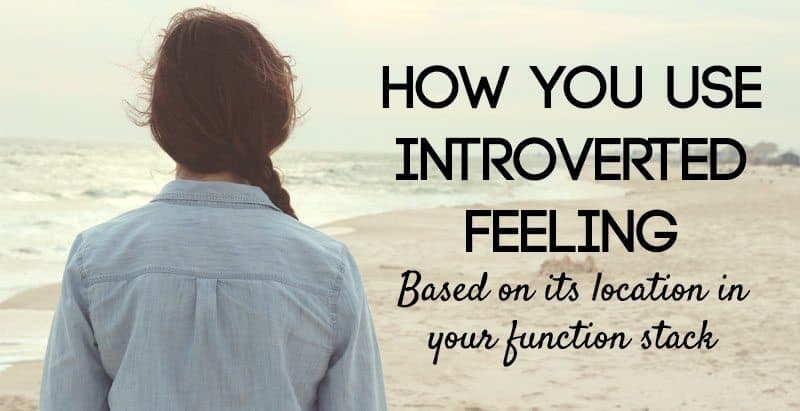10 Signs of an Unhealthy ENTJ
Have you ever met an ENTJ that made you feel intimidated, small, and unimportant? Chances are, you encountered an unhealthy ENTJ. Every personality type can show up in positive or negative ways depending on many factors like their overall maturity, emotional intelligence, upbringing, and more. Today we’re looking at the unhealthy ENTJ and going over 10 signs you either are in an unhealthy space or you’re dealing with an ENTJ in an unhealthy mindset.
But first, let’s talk about why ENTJs become unhealthy.

Not sure what your personality type is? Take our personality questionnaire here. Or you can take the official MBTI® here.
Table of contents
- How do ENTJs Become Unhealthy?
- 10 Signs of an Unhealthy ENTJ:
- #1 – They are Impatient
- #2 – They are Insensitive
- #3 – They Rationalize Everything
- #4 – They Are Overly Critical
- #5 – They Are Terrible Listeners
- #6 – They Jump to Conclusions
- #7 – They Develop a Martyr Complex
- #8 – They Don’t Know Themselves
- #9 – They Believe That the End Justifies the Means
- #10 – They Are Bossy
- Some Tips for Reaching a Healthier State of Mind:
- What Are Your Thoughts?
- Other Articles You Might Enjoy:
- References:
Estimated reading time: 10 minutes
How do ENTJs Become Unhealthy?

Stress:
One of the most common ways that ENTJs become unhealthy is due to stress. A sudden increase of stress or chronic, ongoing stress can make ENTJs behave differently than normal. Some ENTJs will behave more true-to-type, becoming more impatient, task-focused, and impersonal. They may seem like they’re in a rush and you’re just getting in their way. If you try to speak to them, they may seem callous and out of touch with your feelings.
Some ENTJs may be encountering “grip” stress. These ENTJs may be more hypersensitive than normal, taking things personally, wanting to be left alone, and feeling like nobody cares about them and what they’re going through. These ENTJs can be emotionally reactive in a way that is atypical for this type.
Imbalance:
Have you ever met those people who were told they were amazing from day one and just believe it? Those adults who were probably coddled and spoiled as children? They usually aren’t the most fun to be around, are they? ENTJs who grow up in type-alike families and are coddled in their natural strengths may wind up having an imbalanced personality type. Rather than growing in areas that are less-natural to them, they become one-sided. These ENTJs may excel at getting tasks accomplished, organizing, and logically debating. But they may have failed to develop the intuitive, sensing, and feeling sides of their personality. This can result in an adult who is insensitive, impatient, brusque, and out of touch with details. They may also feel like people with other preferences are simply “wrong” for believing or behaving in the way they do. This can show up as judgmental behavior, condescension, narrow-mindedness, or arrogance.
10 Signs of an Unhealthy ENTJ:

#1 – They are Impatient
ENTJs are “In Charge” personalities, according to psychologist Linda Berens’ Interaction Styles. In-Charge™ types like to make quick decisions and move rapidly to get things done. At their best, ENTJs can be decisive and move swiftly when expediency is essential. But at their worst, they become impatient and brusque, pushing others (and themselves) past their limits, and rushing everyone to get things done and make decisions as quickly as possible. Anybody who gets in the way will be met with their frustration and indignance.
#2 – They are Insensitive
At their best, ENTJs pair their logical minds with an awareness that everyone is built differently. They are in touch with their intuition, which helps them to shift perspectives and get into other people’s points of view. But when ENTJs are at their worst, they are out of touch not only with their intuition, but their feeling side. This makes them dismissive of anything having to do with emotions or feelings, and they’ll adopt a mindset that anyone who is hurt by their behaviors or words is simply weak or illogical. They will pride themselves on their no-nonsense, direct delivery without realizing the importance of sprinkling some compassion and empathy into their words.
#3 – They Rationalize Everything
When ENTJs feel insecure, vulnerable, or incompetent, they tend to fight against it by rationalizing everything they’re doing. During this process, they will tout their logic and their reason, but they may completely dismiss things like ethical considerations or the feelings of people involved. This can result in decisions that are logical in an impersonal way, but completely illogical way when it comes to the human element of the decision.
#4 – They Are Overly Critical
ENTJs naturally notice flaws and mistakes in their environment. Things that aren’t logically consistent stand out to them like a sore thumb. But healthy ENTJs know how to balance criticism with praise and they also know that nobody can do everything perfectly (not even them!). They realize that no matter how perfect the world is, they will always find errors no matter what. But the unhealthy ENTJ is less balanced in their worldview; they are highly critical without taking time to see the context of the situation. They may bombard people with criticisms rather than pointing out the good things they have done in the process.
#5 – They Are Terrible Listeners
Healthy ENTJs prioritize their relationships as well as their work, and they make time to actively listen to what other people have to say. Unhealthy ENTJs are so caught up in their tasks and interests that anything that doesn’t directly have something to do with that is seen as an annoying interruption. They tend to tune people out, rush them along, or otherwise make them feel small. I know one ENTJ who would turn his head away and start whistling whenever someone was talking about something he wasn’t interested in!
#6 – They Jump to Conclusions
ENTJs are Judging-dominant personality types. That means that their first cognitive function, Extraverted Thinking, is a judging function. People who are judging dominant tend to want quick decisions. The problem with this is that it means they can quickly jump to a conclusion or judgment before taking time to really analyze the information in any kind of depth. This can make them hasty, overly-judgmental, and ineffective relationally.
#7 – They Develop a Martyr Complex
ENTJs who are in the grip of stress can fall into the world of their inferior function, Introverted Feeling. Normally rational and level-headed, they instead become withdrawn and overwhelmed by feelings they can’t seem to control. They may pull away from people, spend more time alone, or lash out at people for all the ways they’ve not been there for them. ENTJs tend to take on a lot of responsibilities and be hard workers. In the process of doing this, they may forget to do the things that truly fulfill them. Then when grip stress arises, they may feel the loss of all that time intensely. Suddenly all the joys they could have experienced overwhelm them as they think about all the work they’ve done instead. As a result, they can develop a “martyr complex” where they believe they’ve sacrificed so much for everyone else and nobody has been there for them.
#8 – They Don’t Know Themselves
ENTJs take on a lot of tasks and projects and are often highly ambitious people. But in the process, they can lose touch with who they really are. Many ENTJs feel like “human doings” rather than human beings. They are always on the go, always working, always trying to check that next thing off their list. Part of the growth process for ENTJs is getting in touch with who they are outside of the things they do and the tasks they accomplish.
#9 – They Believe That the End Justifies the Means
When ENTJs aren’t balanced, they can be so focused on the end goal that they don’t worry about the ethical implications of their decisions. If they believe the end goal will benefit enough people (or themselves), they may overlook moral lapses in judgment because they feel that their end goal is worthy enough. Healthy ENTJs, in contrast, consider ethical implications alongside the logic of their choices.
#10 – They Are Bossy
ENTJs tend to have formulas and principles that they live by, and that’s a good thing. But when ENTJs get imbalanced or unhealthy they start to believe that their “formula” is one that everyone should follow. They see things that need to be fixed and immediately start delegating to other people around them, telling them what to do, how they should do it, and how to follow their formula for life. These ENTJs often think they know best, and have an arrogant, dismissive tone. Healthy ENTJs, in contrast, realize everyone is coming into their experience with their own worldview and their own needs and duties. They don’t immediately start bossing people around because they realize their formula isn’t necessarily the best one for everyone else in their unique situations and they get more information before trying to organize people and situations.
Some Tips for Reaching a Healthier State of Mind:
Now that we’ve gone over the signs that an ENTJ is in an unhealthy place, let’s talk about some of the ways they can counteract this. Firstly, it’s important for them to make time for themselves. ENTJs can get so caught up in going, doing, and working that they lose touch with who they are and what really matters to them.
If you’re an ENTJ reading this, make sure you’re taking some time for yourself for quiet contemplation. Put away the phone and simply be with yourself. Think about what matters to you, what you want, what you believe in, what possibilities and inspirations lie in store for you. Jot down your thoughts in a journal if it can help you to clarify what’s going on for you. When you take time for this, you get more in touch with your intuition as well as your feeling side. This helps you to be more intentional with your decisions, less hasty, and more calm and focused in your direction. It can also help you to be more conscious of your personal moral code and the things that give you real fulfillment and meaning.
Take time to slow down before you respond or give instructions. What is the context of the situation? What other perspectives are at play? What implications could be in store based on the decision you make? How will you impact others emotionally? Simply giving yourself a few moments to pause and think about these things can help you to be more considerate and wise in your decisions.
When you’re listening to someone speak, identify the values they are defending or expressing. How can you respect those values?
When you get the feeling that someone is in need of emotional support, move yourself to sit by them. Ask them what’s wrong, if everything is okay, and take a moment to just be with them without offering advice. After they’ve had a chance to express their struggles, you can ask them if they’d like any help in coming up with solutions. But be careful – sometimes when people are stressed solutions only cause more stress.
What Are Your Thoughts?
Do you have any thoughts, experiences, or insights you’d like to share with other readers? Keep in mind that we all, regardless of our personality types, experience moments where we’re not at our best. ENTJs at their best are some of the most effective, good-hearted, visionary people you’ll ever meet. But, just like the rest of us, they can have their moments where they’re imbalanced, overly-stressed, and impatient. This article isn’t meant to condemn ENTJs, only to alert them to signs that they’re becoming imbalanced so that they can course-correct. I hope you’ve enjoyed this!
Other Articles You Might Enjoy:
INTJ vs ENTJ: What’s the Difference?
24 Signs That You’re an ENTJ: The Director Personality Type
References:
Understanding Yourself and Others™: Exploring Essential Motivators by Linda V. Berens (Interstrength, 2019)
MBTI® Manual – A Guide to the Development and Use of the Myers-Briggs Type Indicator® Instrument by Isabel Briggs -Myers, Mary H. McCaulley, Naomi L. Quenk, and Allen L. Hammer (CPP, Inc. 2003)
Psychological Types by C.G. Jung (1971, Princeton University Press)
Subscribe to Our Newsletter

Want to discover more about personality type? Get the inside scoop with Susan Storm on all things typological, along with special subscriber freebies, and discounts on new eBooks and courses! Join our newsletter today!











